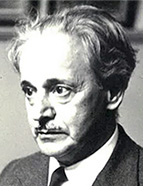

His works on the epistemology of H istory, several of which were left unfinished with the promise of a resumption that never occurred, boasting a diversity of interlocutors (Bossuet, Voltaire, Hegel, Marx, Comte, Wundt, Poincaré, Herculano, Oliveira Martins, Renan, Eucken , and Toynbee, among many others), are ample proof of this. Notwithstanding the systematic nature of his questioning, always guided by the value of criticism and positivity, they reveal his refusal to conform to a particular system, Comte ’ s to start with, given his neglect of H istory ( OF I , p. 19), or to produce one of his own .
He taught in a variety of areas ( History , Philosophy , Sociology , Psychology , Pedagogy ), about which he also wrote – a polymathy that can be easily identified in the three volumes of Obra Filosófica [ Philosophical Works ] , published by the Calouste Gulbenkian Foundation in 1982, with two important introductory studies by the editors, Joel Serrão and Rogério Fernandes. They include the nine main works that he dedicated explicitly to the theory and philosophy of H istory in two periods of his career.
The first, which began with his undergraduate thesis, published in 1911, spans the beginning of the following decade, interrupted by the change of section, and includes, in addition to the two texts already mentioned, the articles published in the Revista de História : “ O Sentimento Colectivo de Finalidade (Realidade – Dinamização Histórica) ” [ The Collective Sense of Purpose (Reality - Historical Dynamisation) ] (issue of 1913-14); “ Théorie de l ’ histoire ” (in two parts, in 1919 and 1920 and presented as a summary of the previous ones). Some scattered writings also appeared in this decade. Worth highlighting is the extensive critique of Antero de Figueiredo ’ s work D. Sebastião Rei de Portugal 1554-1558 [ D. Sebastião King of Portugal 1554-1558] (1924), namely his defence of a “ poetic history’, which should take precedence over any scientific or philosophical version, a text that , in 1927, constituted the first theoretical contribution to the magazine Seara Nova .
This work is financed by national funds through FCT - Foundation for Science and Technology, I.P, in the scope of the projects UIDB/04311/2020 and UIDP/04311/2020.
